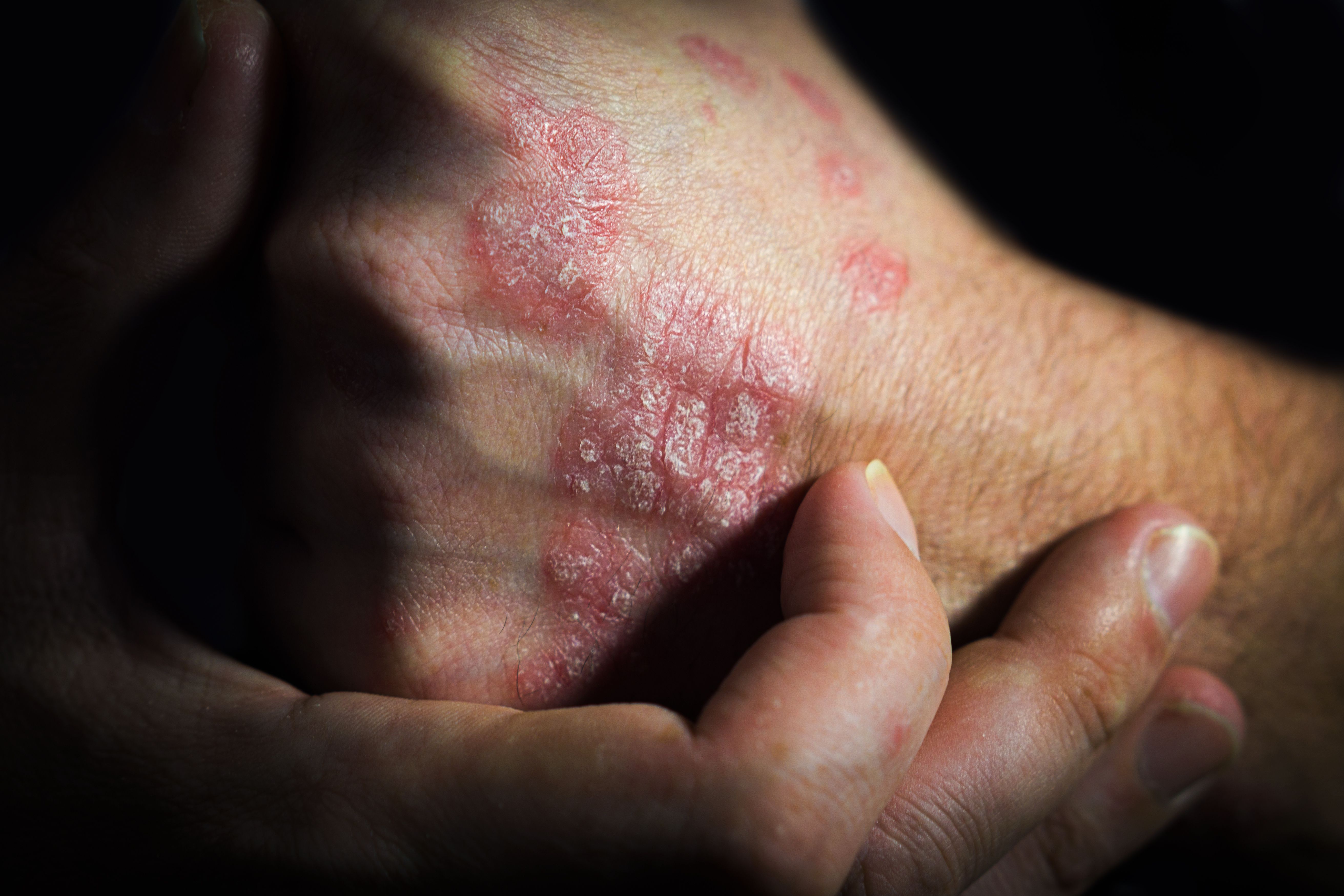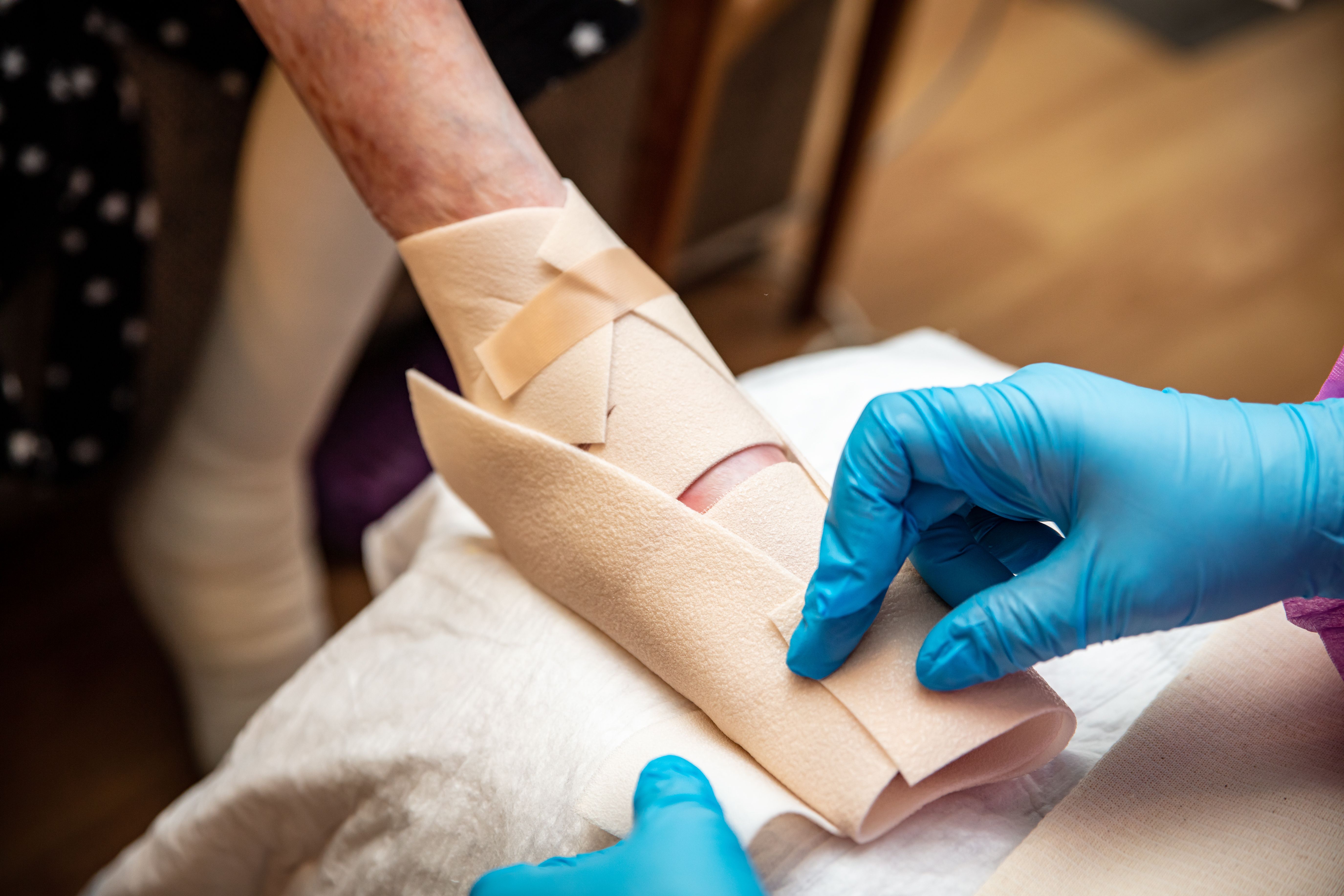- Case-Based Roundtable
- General Dermatology
- Eczema
- Chronic Hand Eczema
- Alopecia
- Aesthetics
- Vitiligo
- COVID-19
- Actinic Keratosis
- Precision Medicine and Biologics
- Rare Disease
- Wound Care
- Rosacea
- Psoriasis
- Psoriatic Arthritis
- Atopic Dermatitis
- Melasma
- NP and PA
- Skin Cancer
- Hidradenitis Suppurativa
- Drug Watch
- Pigmentary Disorders
- Acne
- Pediatric Dermatology
- Practice Management
- Prurigo Nodularis
- Buy-and-Bill
Article
Biosimilars for Humira Are on Their Way
Author(s):
In 2023 as many as 11 biosimilars to Humira are headed for the US market.
In recent years, rheumatologists have become more accepting of biosimilars, and their willingness to use these agents will be critical to the success of biosimilar versions of Humira (adalimumab) coming to the U.S. market in 2023. Clinical data supporting safety and efficacy of these biosimilars will be paramount in prescribing decisions, and Humira biosimilars that also have interchangeability designations will have an advantage in that respect, says Marcus Snow, M.D., chair of the American College of Rheumatology’s Committee on Rheumatologic Care and an assistant professor in the Division of Rheumatology at the University of Nebraska College of Medicine.
Humira is widely used in rheumatology to manage inflammatory and autoimmune conditions such as psoriatic arthritis, Crohn disease, polyarticular juvenile idiopathic arthritis and ankylosing spondylitis.
“The switching of a (patient with well-controlled disease) to a different product is concerning,” Snow says. “The FDA designation of interchangeability provides a lot of comfort for rheumatologists because they can look at the data supporting switching between biosimilars and bio-originators and see that there has not been any drop in efficacy or increase in antibody production. Interchangeability data are going to be very, very helpful, and I think this designation will increase the use of (Humira) biosimilars as they become available,” Snow says.
Interchangeable status is awarded to biosimilars that have not shown any difference in patient outcomes in clinical studies of multiple switches between the biosimilar and its reference product. A biosimilar with interchangeable status can be dispensed in place of an originator brand without the need for physician approval, although states have placed some restrictions on this practice. For example, physicians in many states can insist that the originator brand be used for a particular patient rather than a biosimilar.
Just a few developers of Humira biosimilars have applied for interchangeable status, but even without it, all biosimilars are as safe and efficacious as their reference products, according to the FDA. Snow says it’s difficult to bring a rheumatic disorder under control, so it’s important to have that extra level of trust that a biosimilar won’t lead to a setback. “I think that’s the biggest concern rheumatologists have,” Snow says.
Differences in Humira Biosimilars
Until the need for individual COVID-19 vaccines increased drugmakers’ revenues by tens of billions of dollars, Humira for years was the world’s top-selling drug, generating $20.69 billion in global revenues for AbbVie in 2021 alone.
So far, the FDA has approved seven biosimilars of Humira, and next year as many as 11 of these agents could be available, based on pending applications.
Not all biosimilars of Humira are alike, so physicians and payers will have plenty to think about when choosing between these products for clinical practice or placement on a formulary tier.
These biosimilars vary by concentration, citrate content, needle size, and potential for allergic reactions to latex. Citrate is a buffer that can cause pain upon injection, so citrate-free Humira is preferred by some patients. Similarly, smaller needles can be less painful. Latex is present in some needle coverings and can contaminate needles, affecting patients with allergies. Boehringer Ingelheim has obtained interchangeable status for
Cyltezo, its biosimilar of Humira, and Alvotech is seeking interchangeable status for its own Humira biosimilar, Simlandi, although Simlandi will be a much higher concentration formulation than Cyltezo (100 milligrams vs. 50 milligrams respectively).
Other biosimilar makers, such as Samsung Bioepis, which is based in South Korea, and Organon of Jersey City, New Jersey, have decided that the interchangeable designation is not essential for marketing success. They also avoid jumping through additional FDA hoops. Samsung Bioepis and Organon will market Hadlima and are seeking approval for a 100-milligram formulation, which is considered to have an advantage because it is high concentration and low volume, making it more convenient to administer.
Amgen Has the Pole Position
The FDA first approved Humira as a treatment for rheumatoid arthritis in 2002. By contending that Humira’s patent protections extend beyond 2023, AbbVie has been able to compel all biosimilar makers so far to settle on licensing terms, rather than come to market as free agents. The most recent to settle was Alvotech, an Icelandic company that faced patent infringement and trade secret allegations over Humira. Alvotech decided to pay royalties to AbbVie rather than wage a legal battle that might have caused it to miss out on next year’s coming-out party for Humira biosimilars. As of now, Alvotech’s Humira biosimilar, AVT02, is set to enter the fray in July 2023.
However, Amgen may be in the best position among the companies jockeying for biosimilar market share. Its Humira biosimilar, Amjevita, is scheduled to hit the market in January 2023, giving it a six-month head start on the others.
Economics of Biosimilar Pricing
The wave of Humira biosimilars in 2023 could lead to savings for patients and payers and the knock-on effect of improved access due to lower costs. The success of these biosimilar competitors capturing market share from Humira will hinge on pricing, according to Wayne Winegarden, Ph.D., a senior fellow in business and economics and director of the Center for Medical Economics and Innovation at Pacific Research Institute who has written extensively about biosimilar markets. Past experience with biosimilars in other therapeutic categories has shown that it takes a large price difference for biosimilars to wrest market share from the originator, he says. “You want to see the biosimilars coming in at 40% to 50% discounts; if they come in at 10% or something very close to the originator’s price, that would certainly temper people’s excitement or interest in switching. You need to grab people’s attention with a discount,” Winegarden says.
Another important factor is formulary placement by payers. Payers are favorably disposed toward biosimilars, but how much so depends on how much more inexpensive the biosimilars are, Winegarden explains. At the same time, the list price isn’t the same as the net price, and manufacturer rebates and other factors influence formularies and which tiers products are placed on. It is possible that AbbVie will counter biosimilar competition by offering rebates for use of Humira or force payers into bundling deals that penalize them with reduced access to other drugs if they prefer biosimilars over Humira.
“This is where we need policy changes, particularly making sure consumers benefit from rebates,” Winegarden says. There has been much criticism of rebates that allow savings for payers while patients continue to pay the same amount out of pocket, or even more if manufacturers raise their list prices.
Biosimilar competition outside the United States has steadily chipped away at Humira’s revenues. But in the U.S., AbbVie has had the adalimumab market to itself. The company has seen revenues from Humira grow continually, largely by increasing the price. From 2019 to 2020, AbbVie increased the price of Humira by 9.6%, and in early 2021 the company increased it another 7.4%. By the beginning of 2021, the average sales price for a full year’s supply was as much as $84,000.
AbbVie’s Countermoves
Anticipating steep revenue declines next year when biosimilar versions of Humira appear on market, AbbVie is attempting to switch patients with inflammatory disorders to two relatively new products, Skyrizi (risankizumab) and Rinvoq (upadacitinib). Skyrizi has been approved as a treatment for plaque psoriasis and psoriatic arthritis, and Rinvoq, for rheumatoid and psoriatic arthritis, ulcerative colitis and atopic dermatitis. These efforts have worked from a sales perspective. Global revenues for Skyrizi have grown from
$355 million in 2019 to $2.9 billion in 2021. Rinvoq had an enormous jump from $47 million in revenues in 2019 to $1.7 billion in 2021.
In an earnings conference call in February, AbbVie CEO Richard Gonzalez explained that the snowballing revenue growth is expected to reach $4.4 billion and $2.7 billion for Skyrizi and Rinvoq in 2022, respectively, and eventually top $15 billion in combined revenue for the two drugs by 2025. AbbVie wants to get Skyrizi and Rinvoq approved for all the indications that currently apply to Humira. But AbbVie is still bracing for “significant erosion” of approximately 45% in Humira revenues from 2022 to 2023, with more declines in 2024 as biosimilars gain traction, according to Gonzalez.
Skyrizi and Rinvoq may be increasing in market share, but they are brand-name drugs that will command high prices by virtue of their newness. Physicians who have determined that their patients will benefit from Humira may bypass Skyrizi and Rinvoq and prescribe Humira or a biosimilar, Winegarden says.
Snow agrees. Humira is an important drug in the rheumatologist’s armamentarium, and although Skyrizi and Rinvoq have their own merits, rheumatologists will continue to use Humira and its biosimilars for managing rheumatic disorders, the Nebraska rheumatologist explains. “In some cases they’re not going to be direct competitors, but in some cases, they will be. They’re different enough that it’s not like they’re a direct replacement.”
This article originally appeared on Managed Healthcare Executive.






